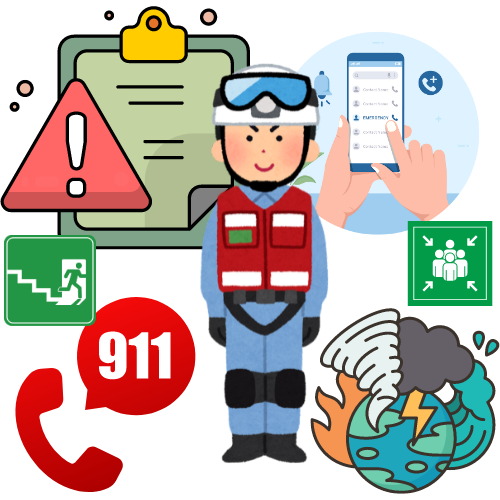Being prepared for an emergency is crucial for both personal safety and the continuity of business operations. If you are a Hybridge client and are in a regulated industry, you will most likely have worked with us on Business Continuity and Disaster Recovery. If not, here are some key steps you and your business can take to be prepared:
Personal Preparedness:
- Emergency Plan: Create a detailed emergency plan that includes evacuation routes, emergency contacts, and procedures for different types of emergencies (e.g., fire, natural disasters).
- Emergency Supplies: Maintain emergency kits at home and possibly at work, including essentials like water, non-perishable food, first aid supplies, flashlight, batteries, and a portable radio.
- Communication Plan: Establish a communication plan with family members and key contacts. Ensure everyone knows how to reach each other during emergencies.
- Training and Awareness: Educate yourself and your family on basic first aid, CPR, and emergency response procedures. Stay informed about potential hazards in your area.
Business Preparedness:
- Business Continuity Plan: Develop a business continuity plan that outlines procedures for maintaining essential functions during and after an emergency. This includes identifying critical business processes, key personnel, and backup resources.
- Emergency Response Team: Designate and train an emergency response team within your organization. Ensure they are familiar with emergency protocols and can coordinate response efforts.
- Data Backup and Recovery: Regularly back up important data and store backups securely in the cloud. Establish procedures for restoring data quickly in case of data loss or system failure.
- Communication and Notification Systems: Implement communication systems that can reach employees, customers, and stakeholders during emergencies. Use multiple communication channels (e.g., email, text messages, Slack) for redundancy.
- Insurance and Legal Preparedness: Review your insurance coverage to ensure it includes coverage for potential risks and emergencies. Understand your legal obligations and compliance requirements during emergencies.
- Testing and Exercises: Conduct regular drills and simulations to test your emergency plans and identify areas for improvement. This helps familiarize employees with emergency procedures and improves response effectiveness.
By taking these proactive steps, both personally and within your business, you can enhance readiness and resilience in the face of unexpected emergencies or disasters. If you would like to discuss your Business Continuity planning, please reach out to info (at) hybridge.com.
Share this blog:









